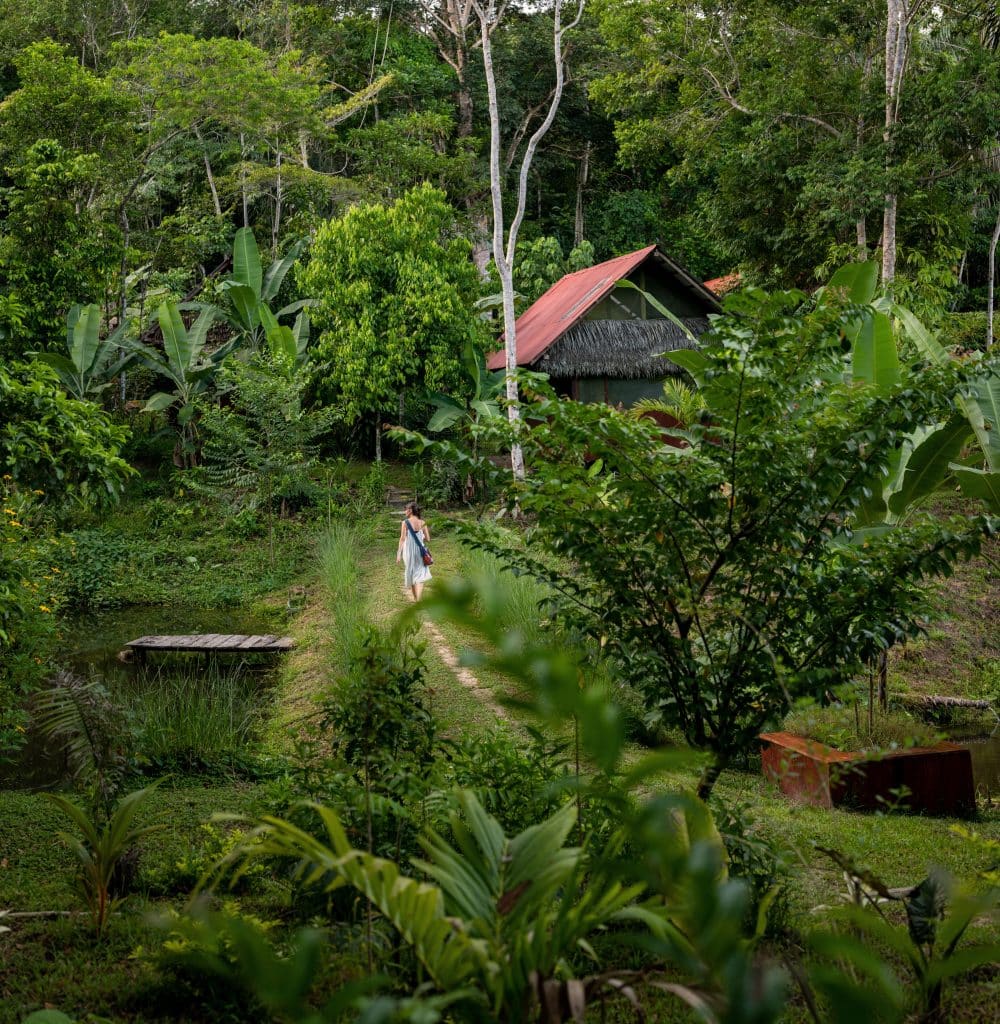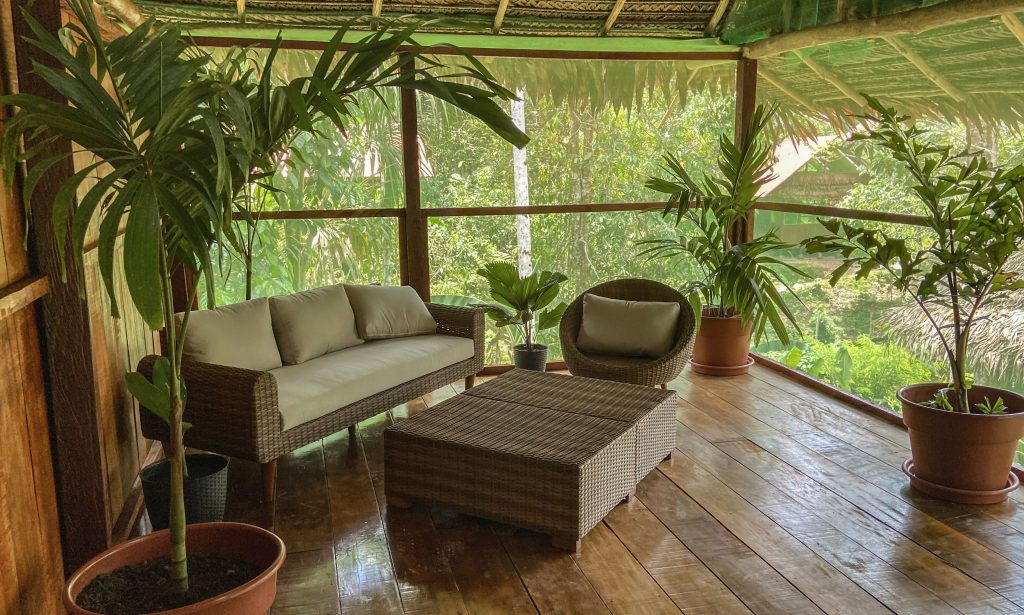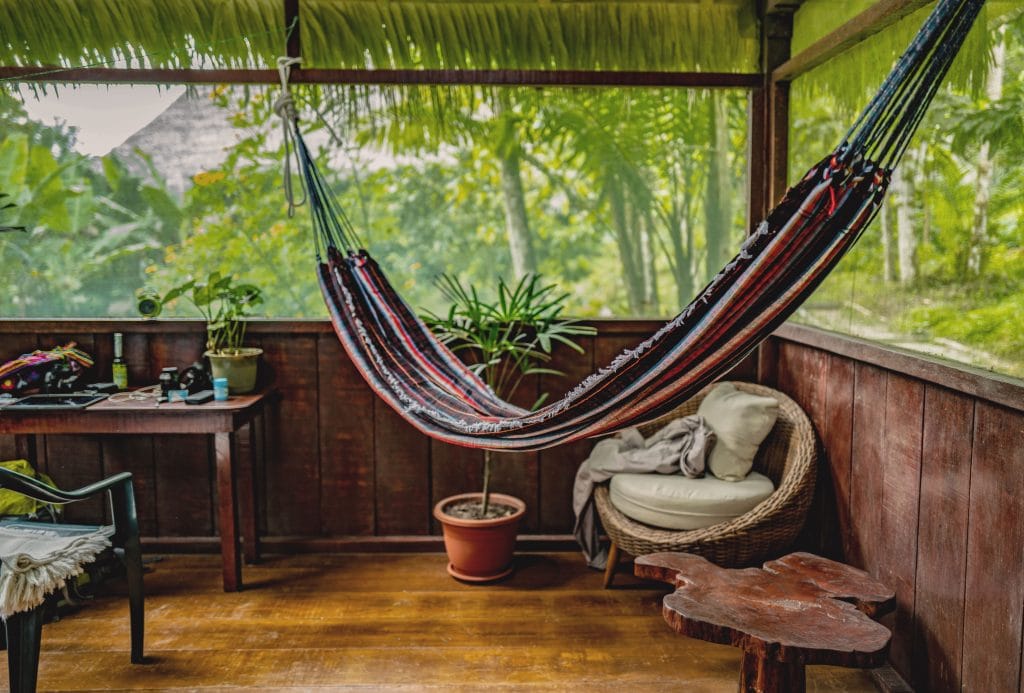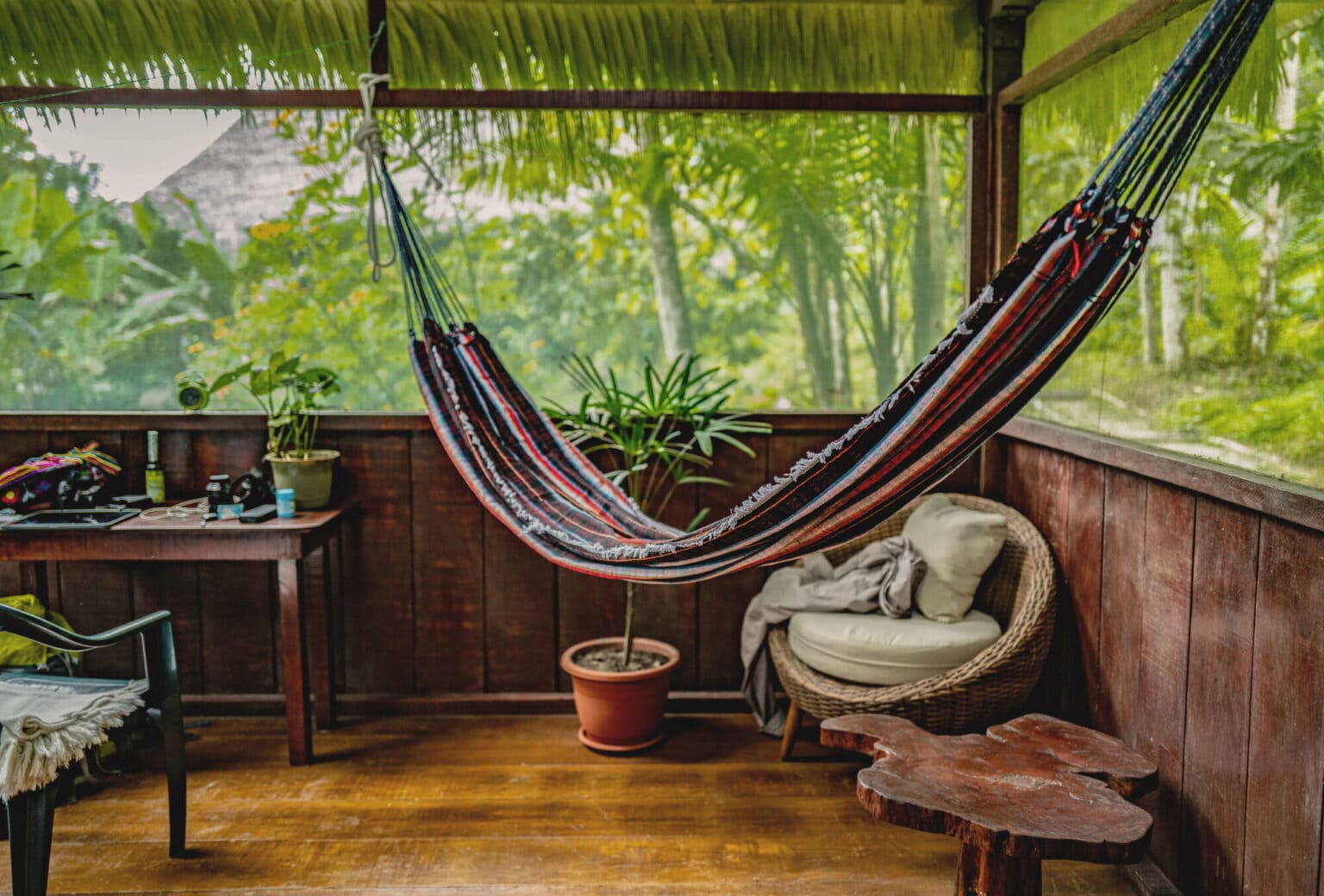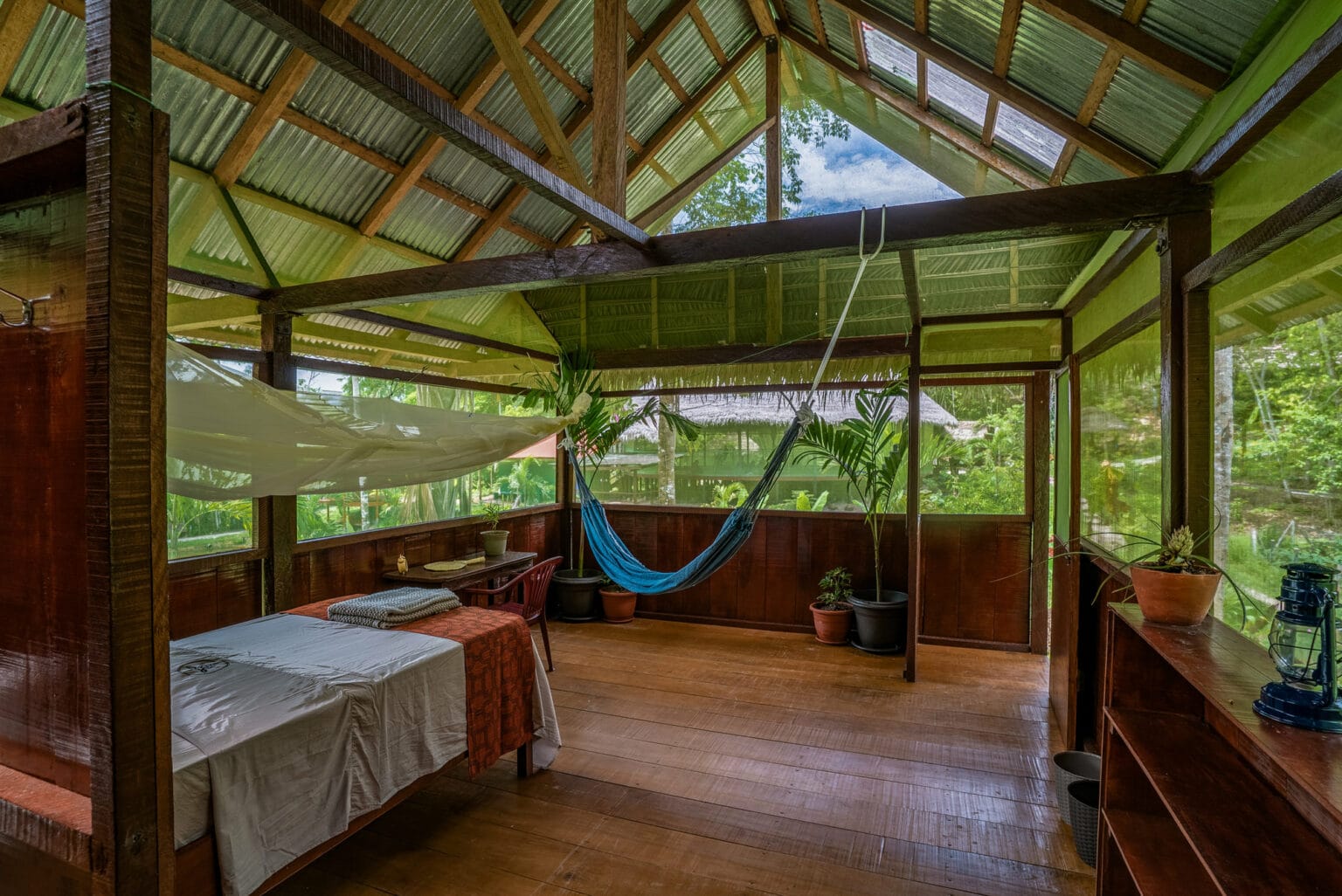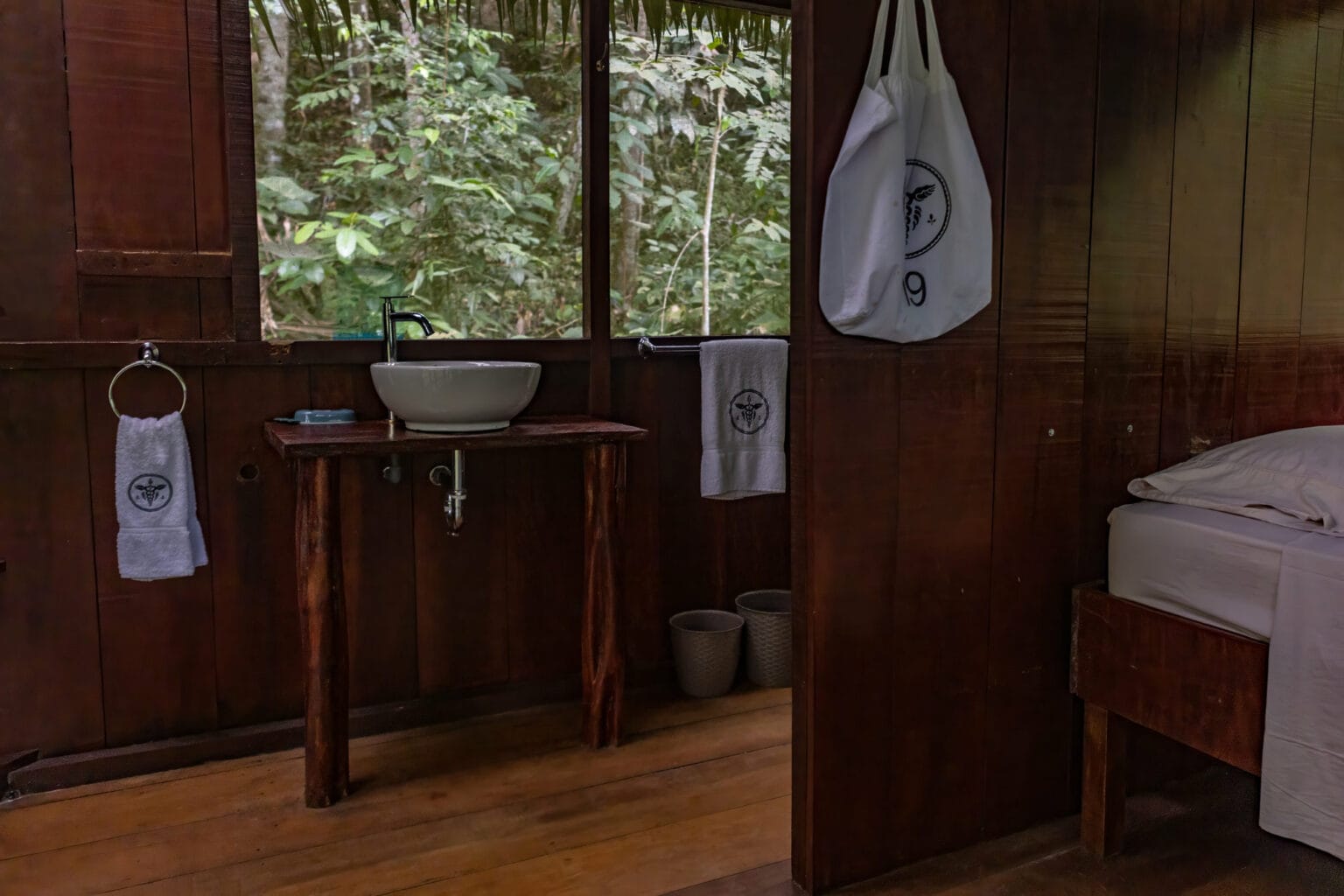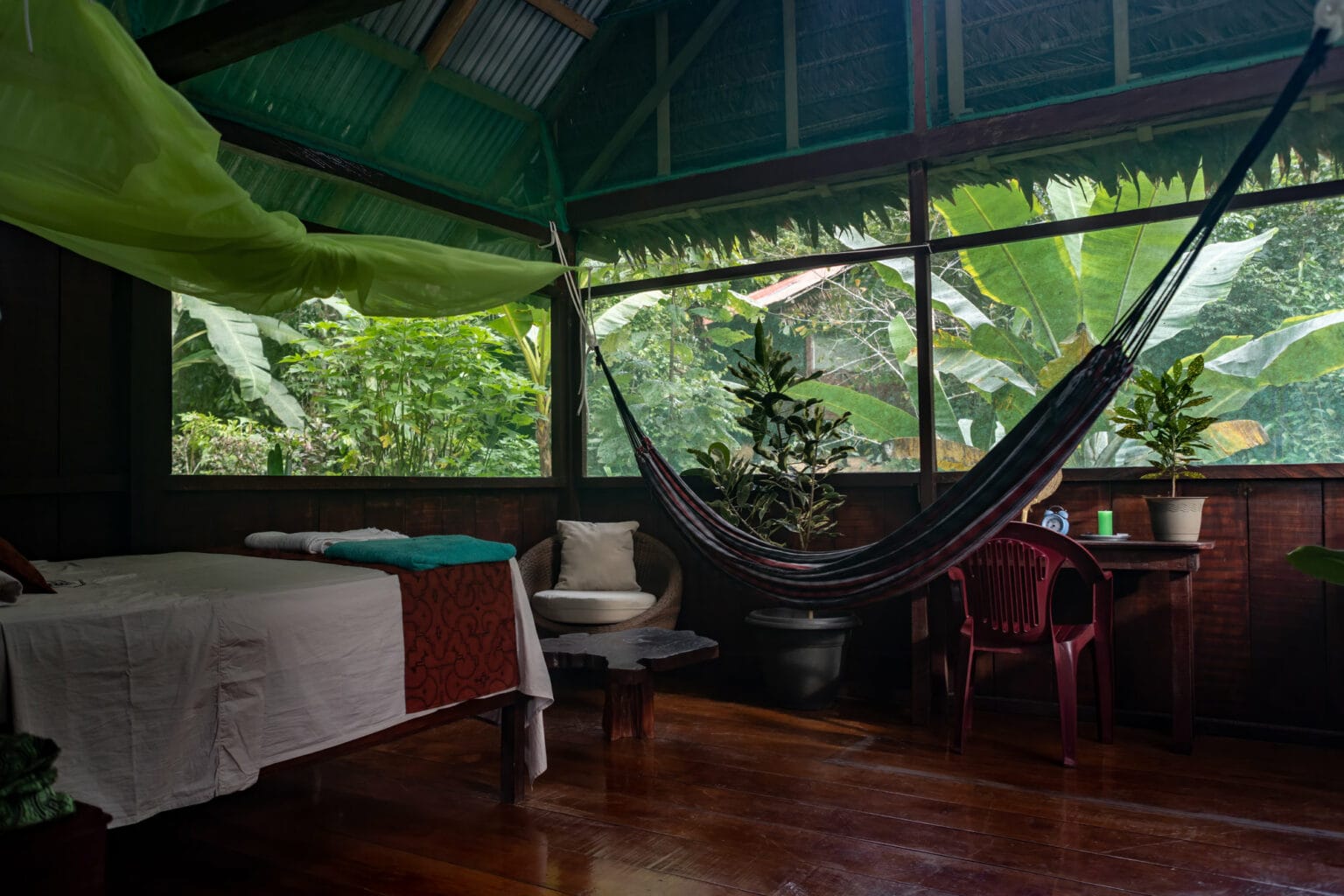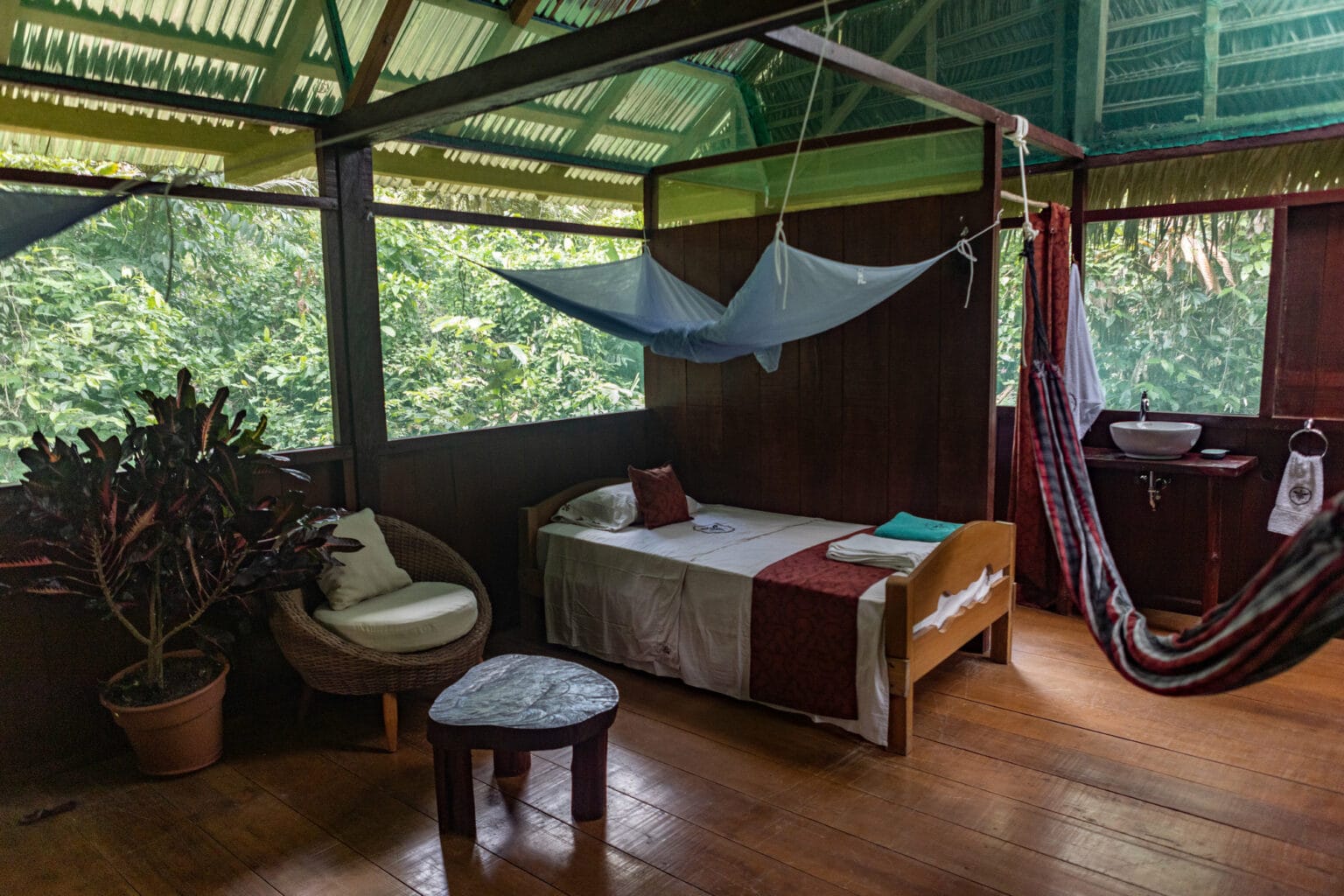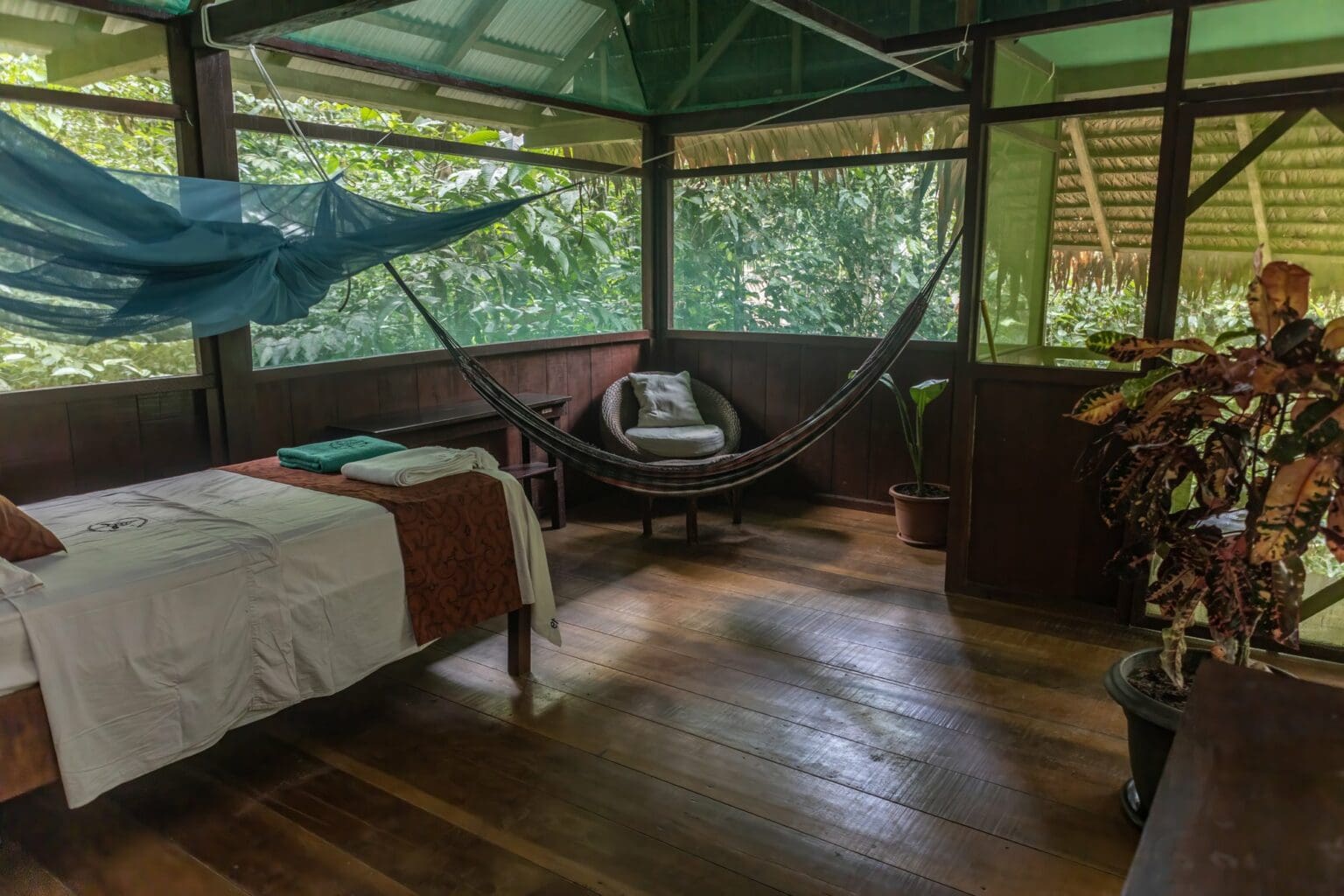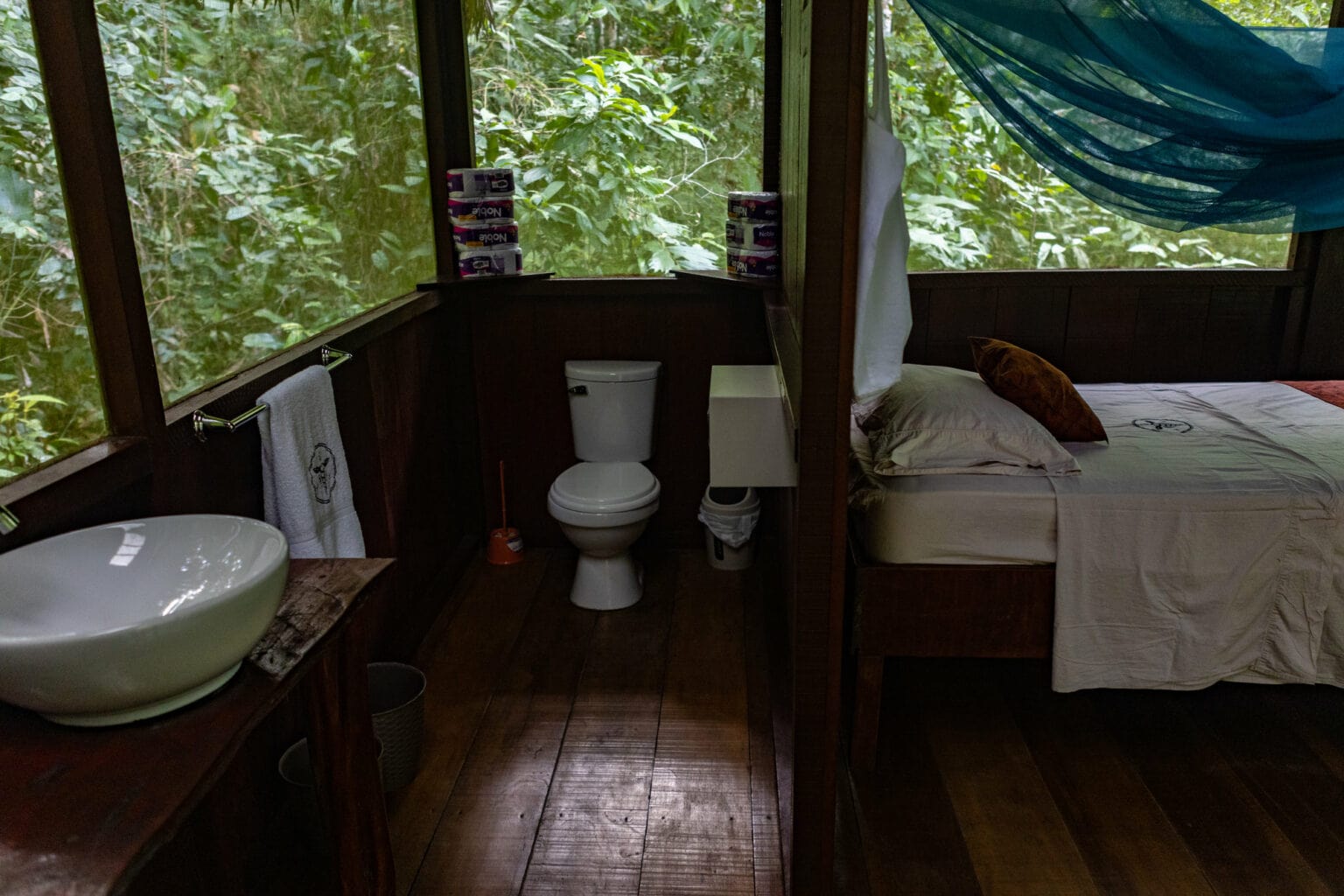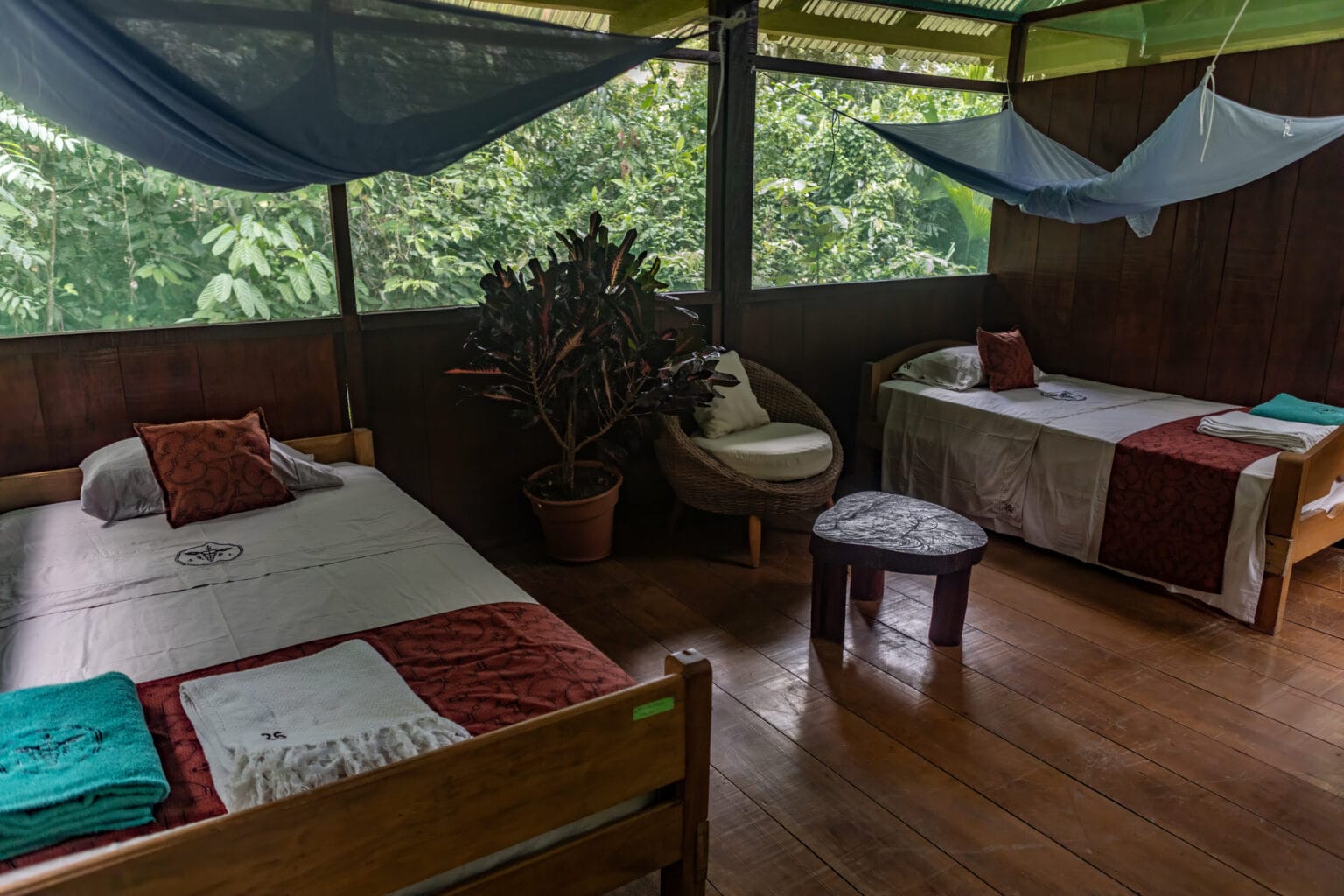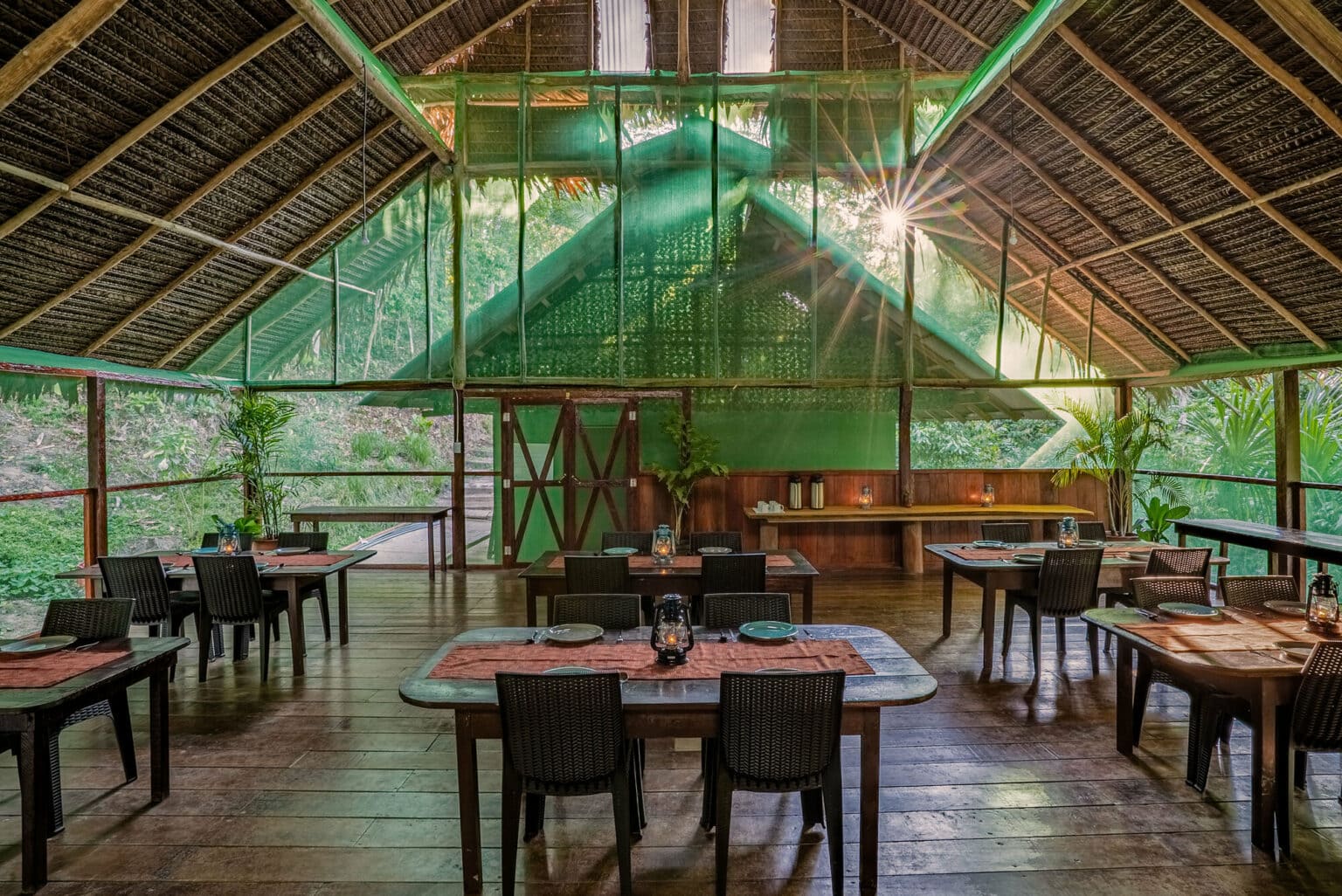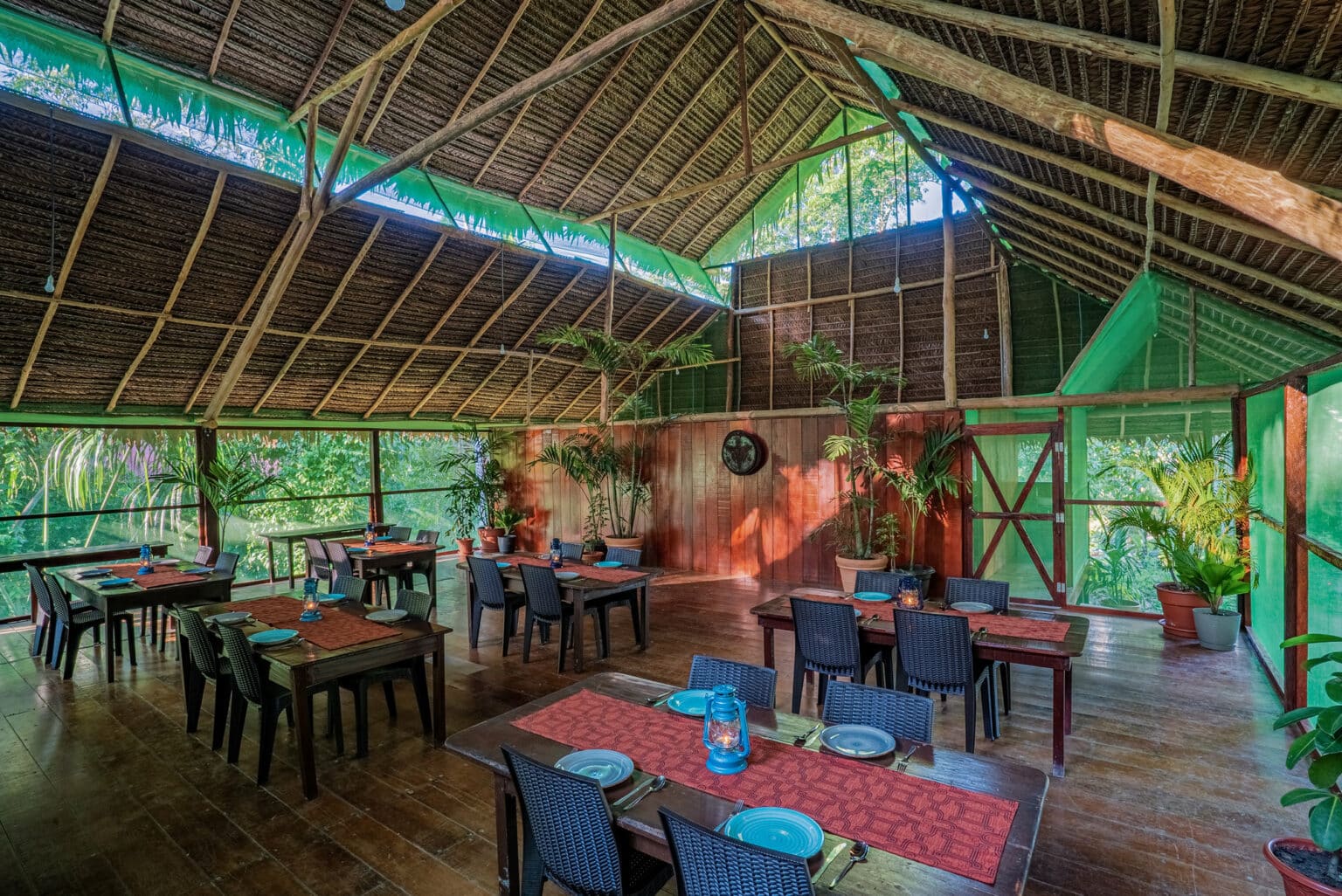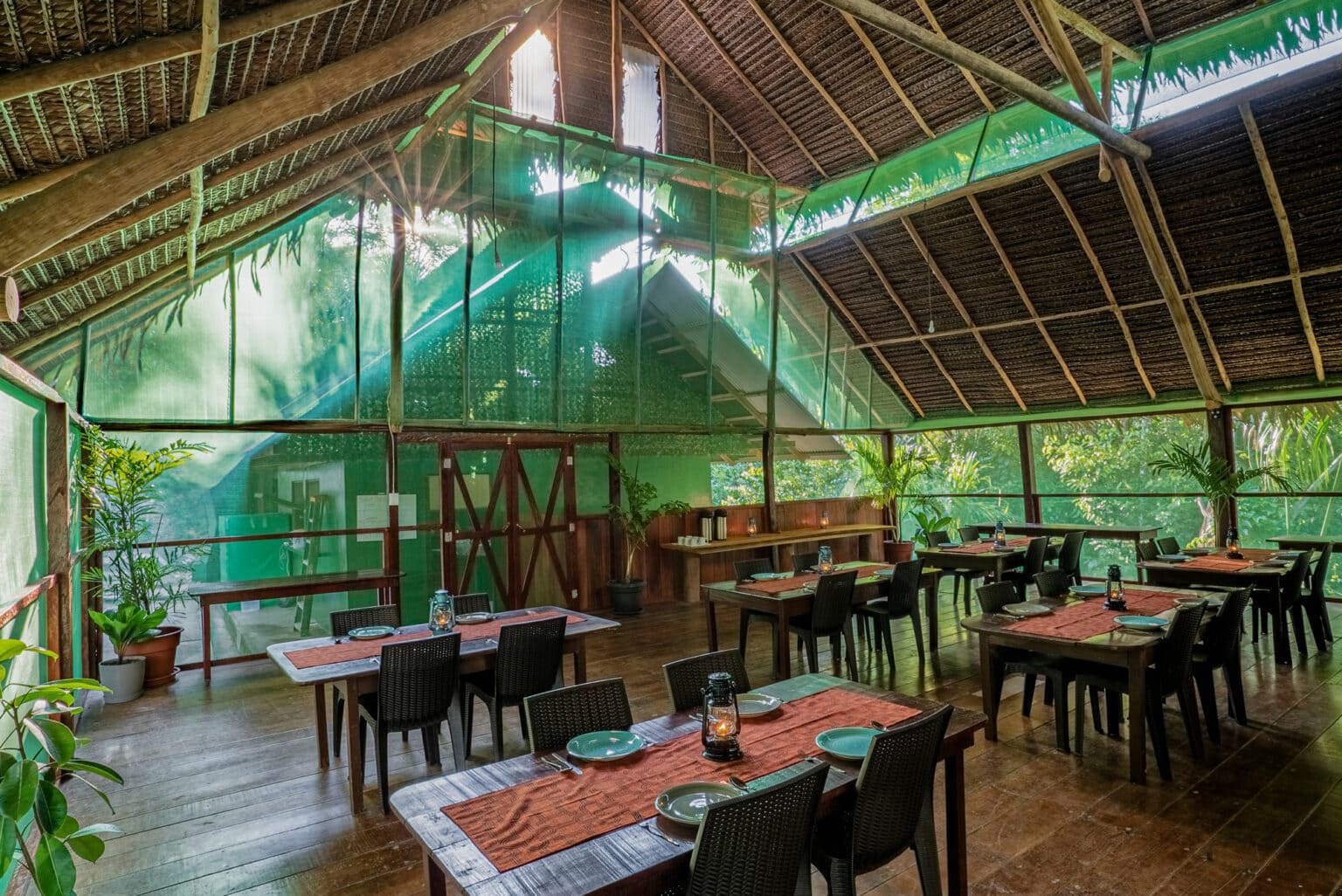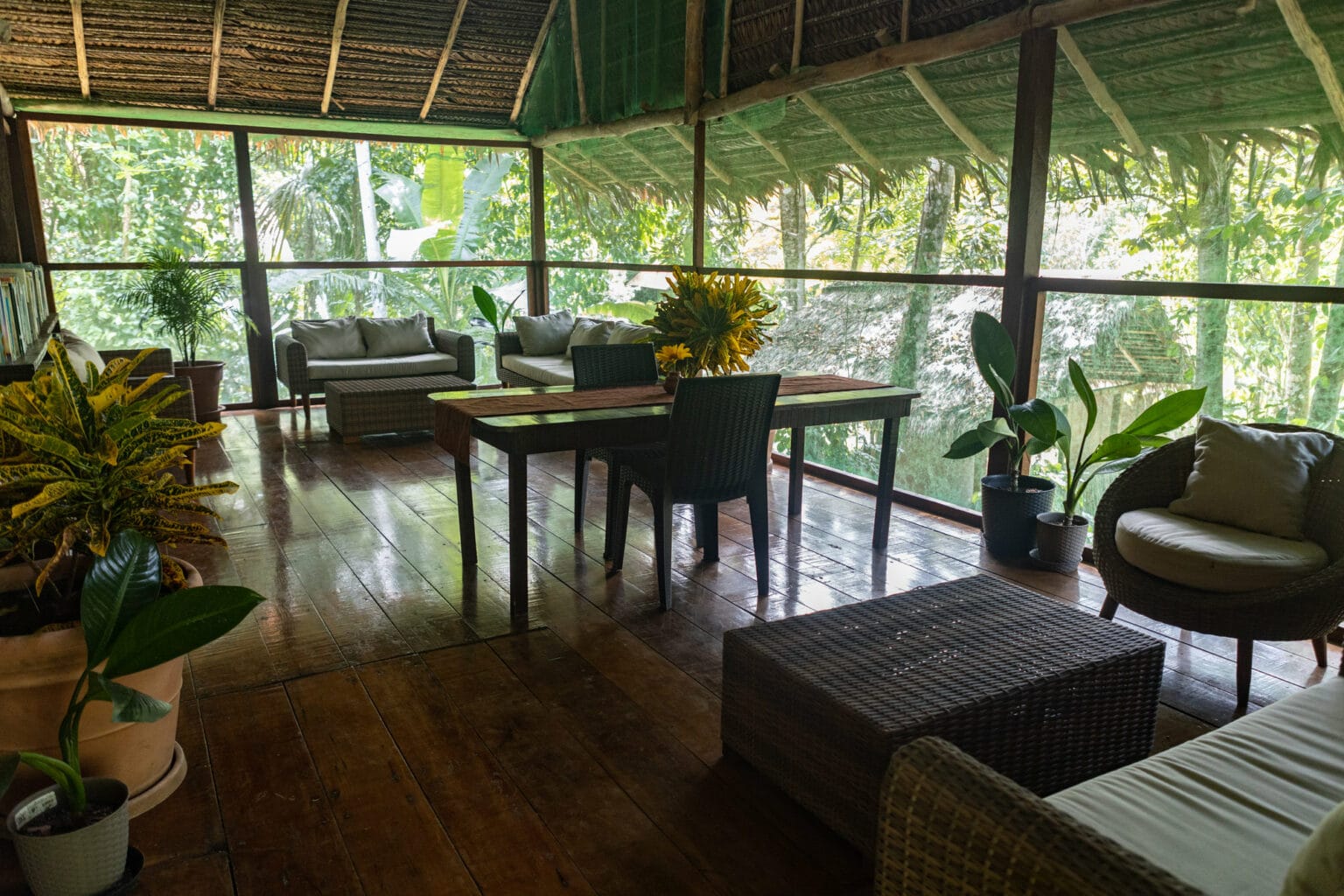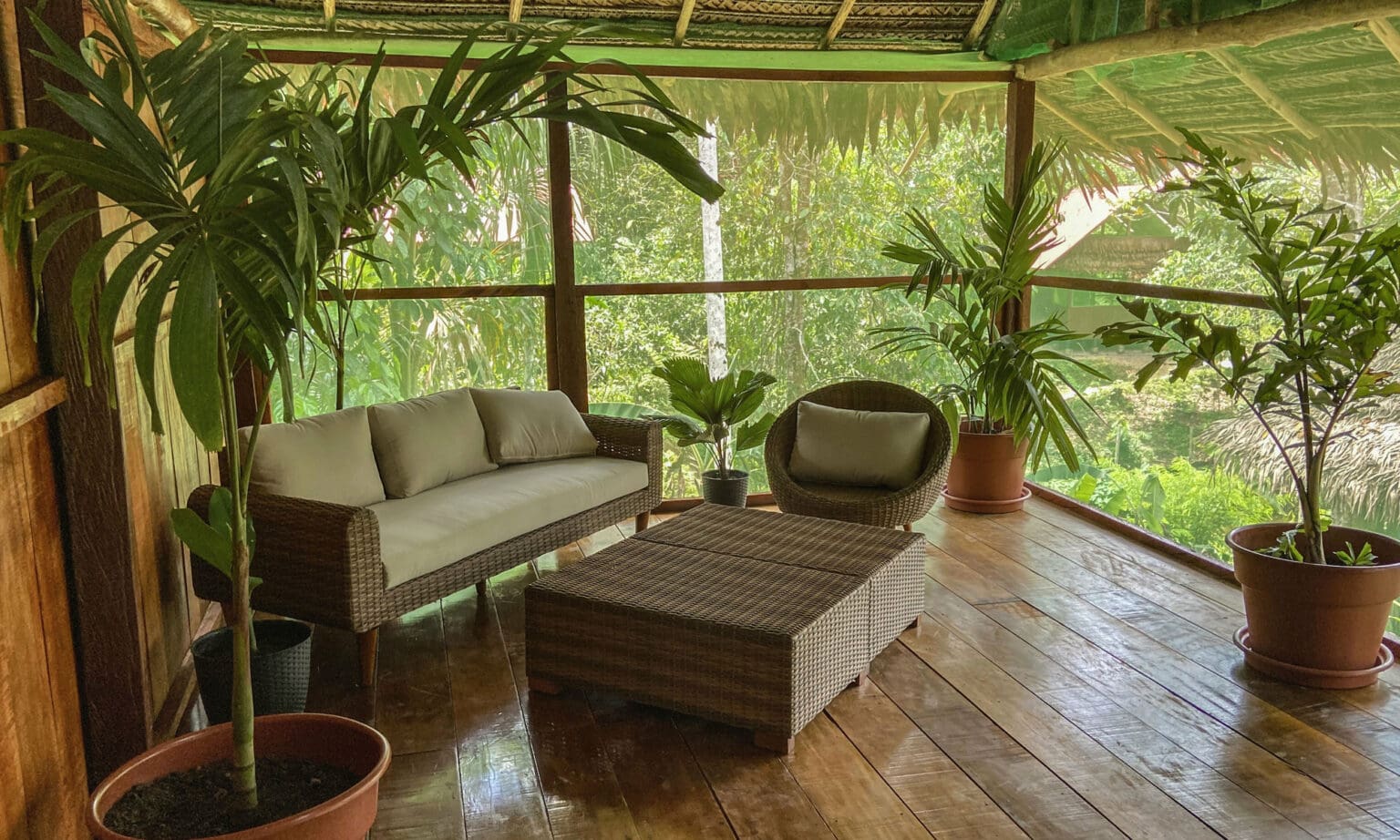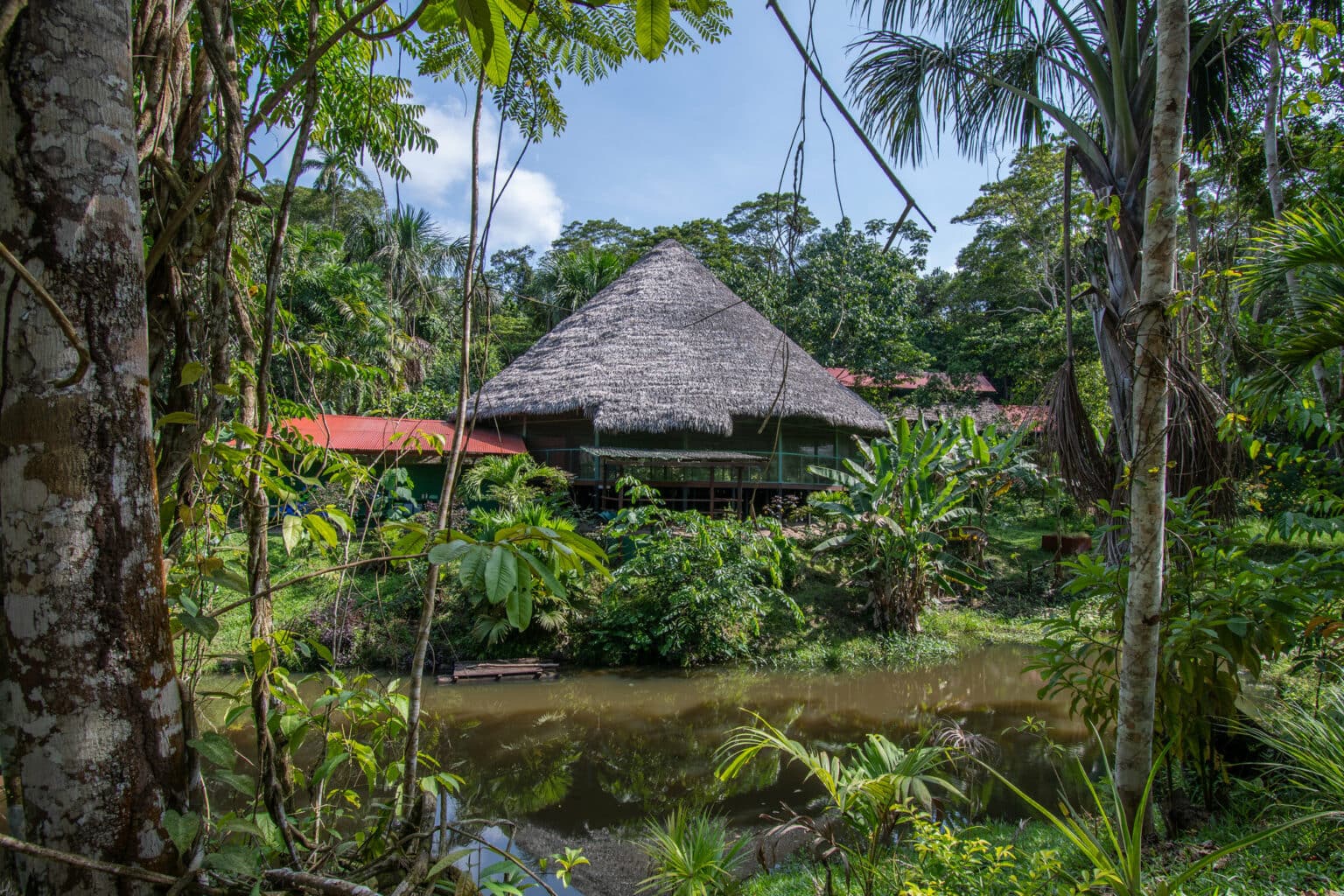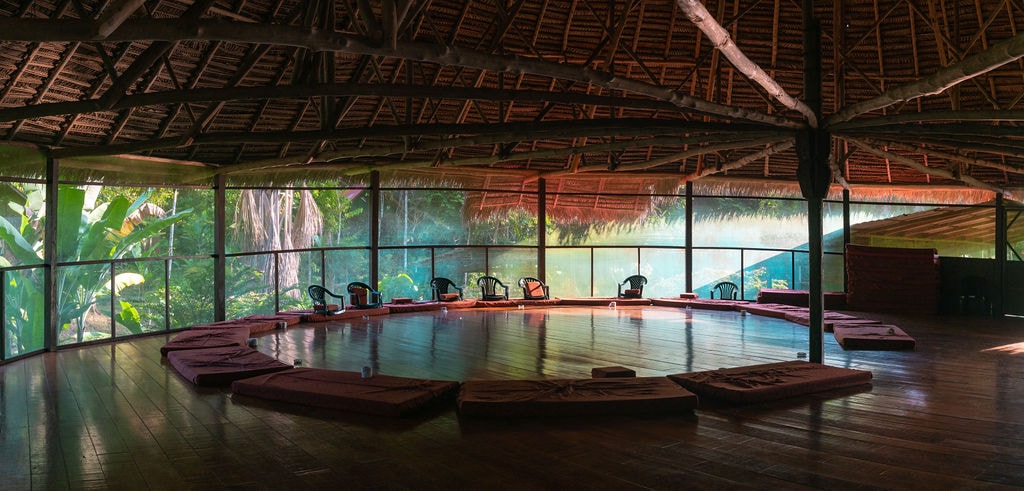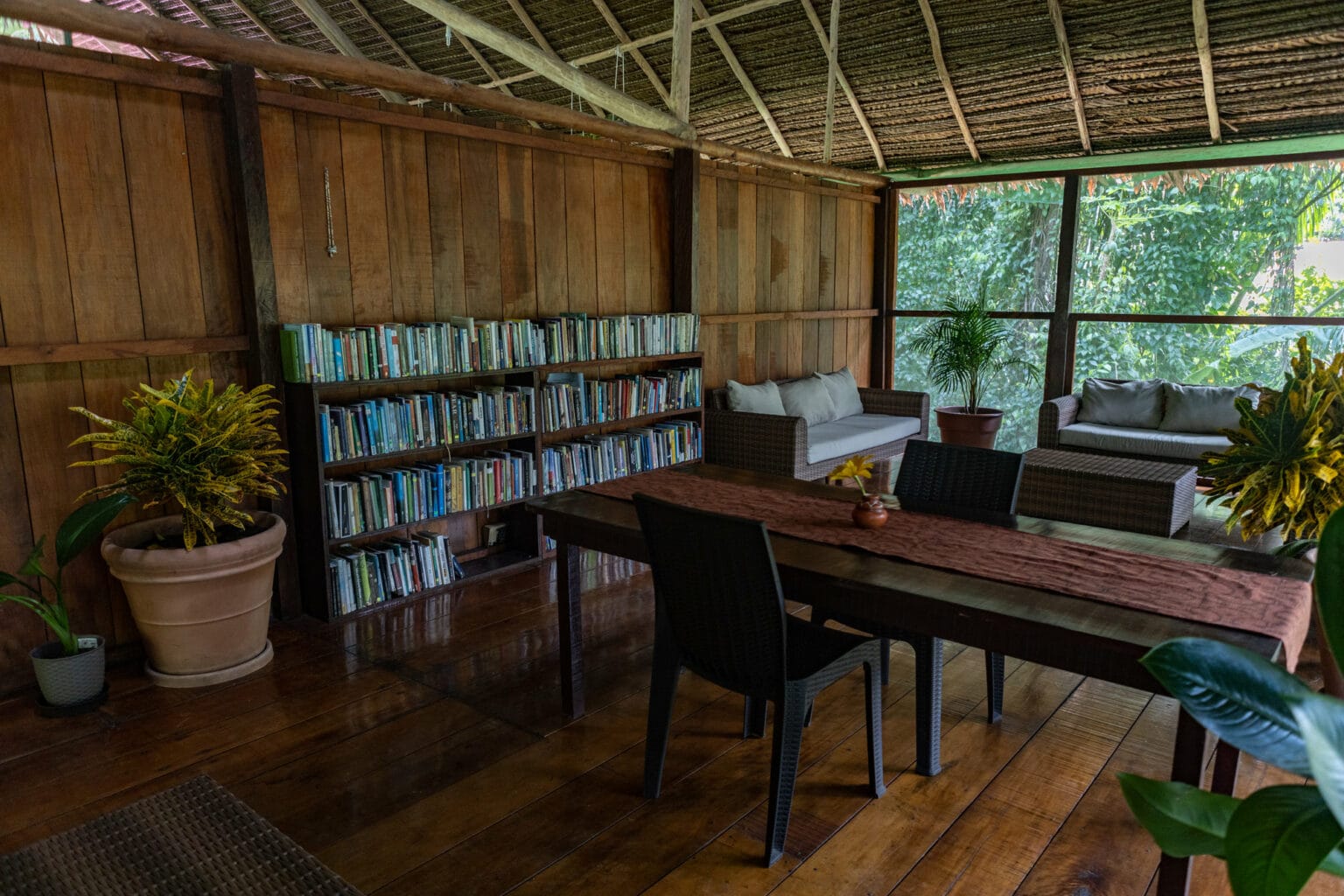Facilities & Accommodation
Surrounded by the Beauty of the Amazon Rainforest

Providing a safe, comfortable, sacred space for our guests to heal and transform is our priority. Covering nearly 300 hectares, the Temple is located in the heart of the Amazon, in an extraordinarily beautiful rainforest setting, that has been lovingly stewarded since our mission began in 2007.
A Permaculture Inspired Eco-Lodge in the Amazon
We have expanded our infrastructure significantly since the Temple’s inception, and have focused extensively on developing our grounds planting thousands of medicinal plants, fruit and medicine trees, ayahuasca vines, native flowers and ornamentals.
Since 2012, we have developed permaculture projects, agroforestry plots, food production, fish farms, and installed environmentally friendly bio-digester waste systems, rainwater harvest and natural spring water systems.
The Temple now consists of over 50 buildings spread out across three separate eco-lodges. Our main centre is dedicated to ayahuasca healing retreats, complimented by two permaculture centres, one of which is the headquarters for the Chaikuni Institute’s permaculture & regenerative agriculture program.
We proudly maintain our firm commitment to keeping our accommodations electricity, AC, and WIFI-free, ensuring our guests are best supported to unplug from the distractions of the modern world and able to experience an immersion into the rhythms and energies of the Amazon Rainforest – connecting to the birthplace of ayahuasca.
The Maloka
At the heart of our main center is the maloka, a large building made in a traditional, local circular design. It is constructed with local wood, has a tall, conical roof covered with native leaf, and is screened with mosquito netting. The maloka is a sacred space used for ceremonies, meetings, yoga and meditation classes. There are mattresses and back-support chairs available in the maloka space for ceremonies and resting.Healers House
This is where the Shipibo healers reside while living and working at the Temple. It consists of sleeping quarters, a large porch, a kitchen, an area for preparing medicinal plant remedies, and a medicinal plant garden. The porch is where the healers administer treatments, massages, and plant remedies daily throughout the workshop. Plant medicine vapor baths also take place in front of the healers' house at the beginning of the workshop.Dining Room
The dining room is a large traditional building made from local woods with a native leaf roof and screened with mosquito netting. We can seat up to 40 people and all guests and retreat staff eat together.Guest Bungalows
Guest accommodation consists of 24 tambos (traditional jungle sleeping huts) spread across about three hectares of the Temple grounds. Our tambos are built from local wood and screened with mosquito netting. They offer rustic but very comfortable accommodation for guests and a space where you are able to connect in peace and solitude to the surrounding nature.
Tambos are all individual or we can offer double occupancy subject to specific requests. Each tambo has one or two beds with cotton bedding, mosquito nets over the beds, wooden shelving, a desk, a comfy chair, a hammock, a sink, and a flushing toilet connected to our bio-digester waste management system.
All lighting is provided by candles and gas lamps, ensuring you experience the magic of the forest at nighttime whilst still disconnected from anything ‘unnatural’.
We have no electricity in tambos and we intend to keep it this way – natural, rustic and simple.
Chill-out Room
Adjacent to the dining room, we have a chill-out room for guests to socialise during the day, and occasionally after ceremony. With comfortable sofas and chairs, indoor plants, and a library of many books donated by previous guests available for use during your stay at the Temple.Toilets and Showers
Located next to the maloka are three bathrooms, each with flushing toilet and a shower. Spring water is routed to the showers and sinks through the combined use of gravity and a solar-powered pump. The toilets are always staffed during ceremonies and are cleaned throughout the day and during every ceremony until the ceremony has ended. There are also two additional showers and a laundry area located across a bridge next to the maloka. All grey and black water waste from the showers and toilets runs through our bio-digester waste management system.Floral Bath Area
Adjacent to the maloka is a covered area where the maestras prepare and offer plant and flower baths to guests each day.Kitchen
The kitchen is attached to the dining room, and is used solely by four cooks to prepare meals for guests and staff. Meals are served daily for breakfast, lunch and dinner (except on ceremony nights).Fish Farms
As part of our commitment to self-sustainability, we have built nine fish farms throughout the Temple grounds. Our intention is to meet all fish requirements for guests, staff and healers through our own production, no longer buying fish from the market in Iquitos. We are currently rearing a selection of the most popular Amazonian fish including paiche (the largest fresh water fish in the world), gamitana, and saballo.Kiosk
Over the years, we have identified the need for a small general store at the Temple. Our small, bar-style kiosk offers fresh coconuts, mapacho (sacred jungle tobacco used in ceremony), AA and AAA batteries, lighters, organic soaps, personal hygiene products, toothpaste, toothbrushes, and products made by our sister NGO, the Chaikuni Institute.

“The gold-standard for plant medicine healing and spiritual growth”
